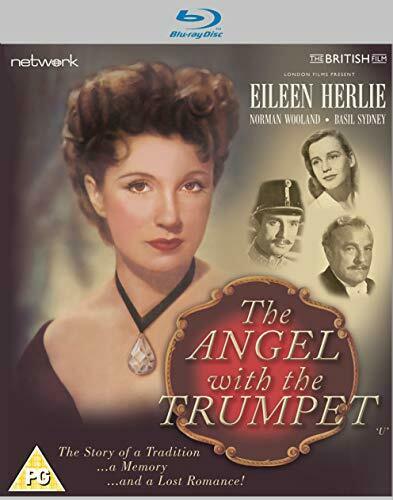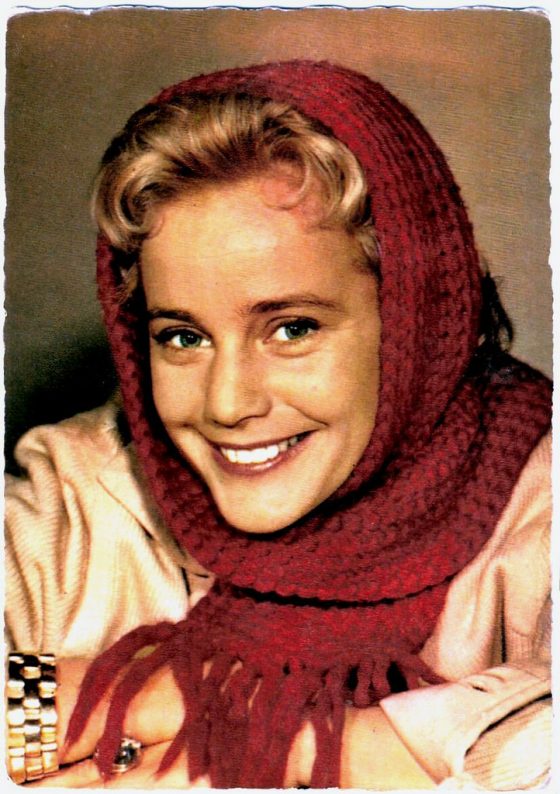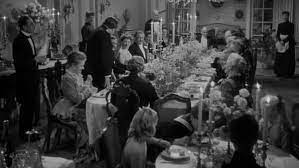A British adaptation of one of post-war Austria’s most significant films, The Angel With the Trumpet is the powerful, panoramic story of a family’s tribulations from the last decades of the nineteenth century through to the dark days of Nazi rule. Featuring the great dramatic actress Eileen Herlie in her first starring role, this film also stars Basil Sydney, Norman Wooland and Anthony Bushell, who also directed.

When Francis Alt, the head of the famous family of Viennese piano makers, decides to marry socialite Henrietta Stein, his family object due to her Jewish heritage and known dalliance with the Crown Prince Rudolph. When the marriage goes ahead despite their objections the Prince commits suicide, leaving Henrietta a note…
It is the lovely Maria Schell, who dominates the post WWII story. She is a gifted, but impoverished, pianist who marries the head of the great piano-manufacturing family that is the heart of the story. The family is part Jewish and had paid dearly under Nazi persecution. One son in the preceding generation even falls under the spell of the Nazis in the thirties and forties.

ABOVE – Maria Schell who, a few years later, was in ‘So Little Time’ with Marius Goring – a really good film that was, which didn’t do too well at the time – Marius Goring said that it came at the wrong time and audiences didn’t seem interested – maybe a bit later they would have been because it had such a strong storyline
In ‘The Angel with the Trumpet’ the story begins with the Jewish founder of the firm and his aristocratic non-Jewish wife. His wife is close to the Hapsburg court and gets intimately involved with the decline of that unhappy family. The drama begins slowly, but builds momentum as the family saga continues.
A film worth seeing. It is at times riveting and encapsulates Austrian history from pre WWI to post WWII.
The Ernst Lothar novel is available from used book dealers and in some libraries.
This novel was made into a 1948 Austrian film, with Adrienne Gessner filling one of the secondary roles. It was remade in Britain in 1950 – the version above – starring English actors but using much of the Austrian-shot footage.

… [Trackback]
[…] Info to that Topic: filmsofthefifties.com/the-angel-with-the-trumpet-1950/ […]
… [Trackback]
[…] Find More on to that Topic: filmsofthefifties.com/the-angel-with-the-trumpet-1950/ […]
… [Trackback]
[…] Find More on that Topic: filmsofthefifties.com/the-angel-with-the-trumpet-1950/ […]